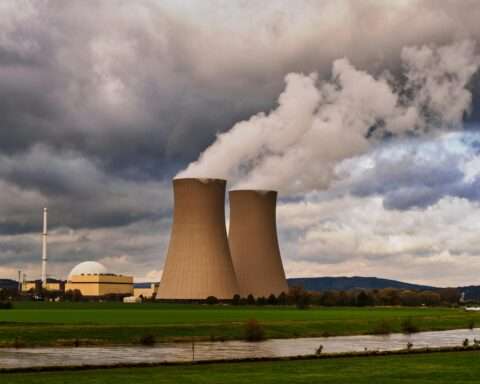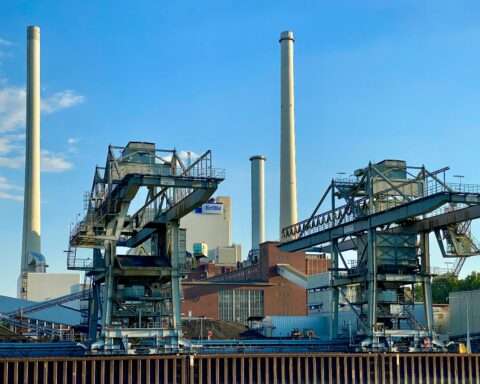College campuses in New York are becoming part of efforts to prevent the worst effects of climate change through electrification. The state is investing $150 million to make its public college campuses more energy efficient, with the State University of New York (SUNY) receiving $100 million and the City University of New York (CUNY) set to get $50 million.
Funded through the state’s $4.2 billion Clean Water, Clean Air and Green Jobs Environmental Bond Act, the upgrades include improved heating and cooling systems, geothermal power and solar installations. SUNY’s portion will support projects at four campuses, while CUNY’s share will fund upgrades at three campuses.
The funding is part of a broader push to decarbonize New York’s public buildings while creating union jobs in clean energy. University buildings are getting old at the same time that they are under pressure to reduce emissions. New York’s investment showcases how public institutions can leverage bond funding to simultaneously address deferred maintenance, cut operating costs and advance climate goals.
The state’s interim environmental commissioner Sean Mahar said, “New York is supporting advanced thermal energy networks, EV charging infrastructure, and other technologies that reduce pollution, lower operating costs and create far-reaching benefits for schools and their surrounding communities.”
At SUNY Binghamton, new heat pump systems will replace 20-year-old equipment, and they are estimated to reduce energy use by 45 percent and operating costs by $300,000 annually while eliminating 1,100 metric tons of greenhouse gas emissions. Meanwhile, the University at Buffalo will construct its first renewable energy hub on the South Campus, laying the groundwork for phasing out fossil fuel systems across the university.
SUNY Oswego plans to build a system for geothermal heating and cooling, requiring extensive underground utility work and central plant upgrades. And at Stony Brook University, multiple ground and rooftop solar arrays will help decarbonize Long Island’s electric grid while providing capacity for future campus growth.
On the CUNY side, City College of New York will install parking lot solar canopies with battery storage and EV charging stations, along with heat pumps for the library and science building. Brooklyn College will tap geothermal energy for its West End Building while adding rooftop solar and EV charging stations at other facilities.
Hunter College will begin converting its North Hall air conditioning from steam to more efficient electrified water systems, a key step in modernizing the campus heating and cooling infrastructure. The project looks to reduce both baseload energy use and fossil fuel consumption.
The funding represents roughly 25% of the total allocated so far from the Environmental Bond Act, which voters approved in 2022. The governor’s latest budget proposal would build on this with over $1 billion in additional climate investments.
Photo courtesy Kenneth C. Zirkel, CC BY 4.0 https://creativecommons.org/licenses/by/4.0, via Wikimedia Commons













